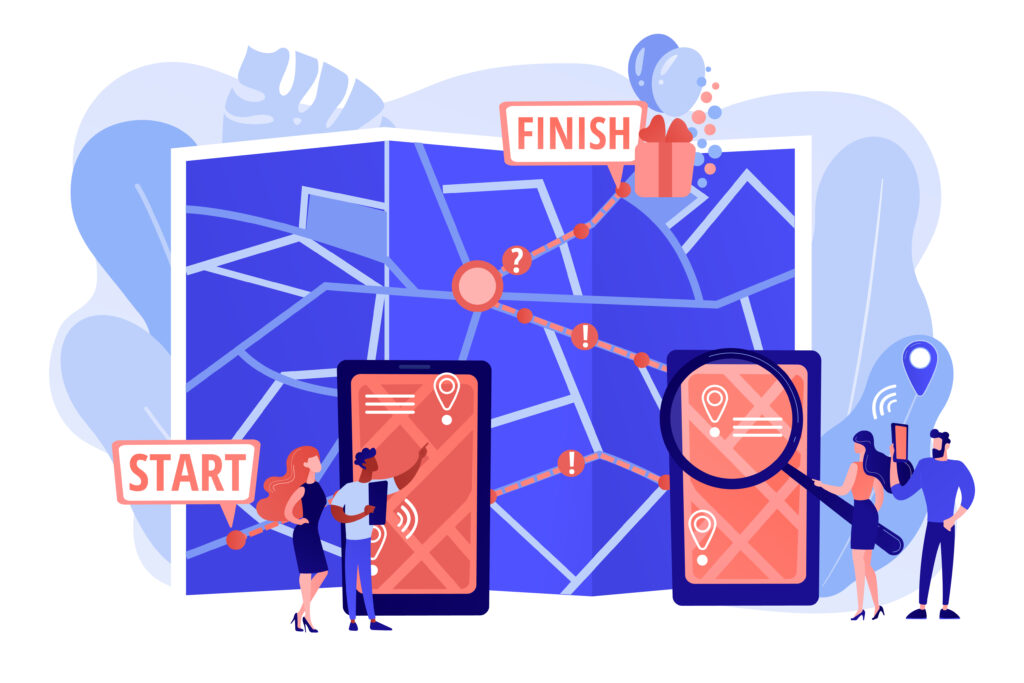Website localization means making changes to a website so that it works better with the language, culture, and place of its visitors. This is more than just reading what’s written on the page. It also means changing the website’s design, images, and general tone and style to make it more relevant and appealing to people in the area.

It is important for businesses to localize their websites because it can help them:
- Reach a wider audience: By “localizing” your website, you can make it usable by people who speak different languages and come from different countries. This can assist you in reaching a larger audience and growing your business.
- Increase sales: According to studies, individuals are more likely to acquire items and services from companies that communicate with them in their native language. By making your website more localized, you may be able to get more sales from people all over the world.
- Build stronger relationships with customers: When you localize your website, you demonstrate to your clients that you are concerned about their needs and devoted to providing them with a great experience. This can help you build stronger relationships with your customers and make them more loyal.
- Improve brand awareness: Localization can help you get your brand seen in more places. By localizing your website, you may increase the visibility and accessibility of your brand to potential buyers in those markets.
- Gain a competitive advantage: Localization might provide you with a competitive advantage over competitors who do not localize their websites. You may demonstrate to potential clients that you are devoted to their market and understand their demands by localizing your website.
- Improve your SEO ranking: Localization can assist you increase your search engine ranking. Localizing your website makes it more relevant to local search searches. This can help your website rank better in search results and attract more visitors.
- Increase user engagement: Localization can help you enhance website user engagement. Users are more likely to stay on your website and examine your information if they notice that it is in their native language and related to their culture.
- Improve your bottom line: Finally, website localization can assist you in improving your bottom line. You may develop your business and enhance your earnings by reaching a larger audience, increasing sales, and strengthening customer relationships.
Also Read: Localization Vs Globalization – What’s the Difference?

How to localize your website
There are a number of things you can do to localize your website, including:
- Translate your website’s content: This is the most crucial step in the process of localizing your website. To ensure that your translations are accurate and culturally suitable, hire a professional translation agency.
- Adapt your website’s design and imagery: When you’re making your website, think about the local society and taste in art. Use imagery that is relevant to the local audience and avoid pictures that could be interpreted as offensive or disrespectful.
- Adapt your website’s tone and style: The tone and layout of your website should fit in with the society of the area. One example is that being too direct or pushy is seen as rude in some societies. In these societies, you should use a more indirect and polite tone.
- Use local keywords: When you make your website search engine friendly, use area keywords. This will help people who are searching for goods or services in their own language find your website more easily.
- Make it easy for users to switch languages: Make it simple for customers to switch languages if your website is offered in various languages. This is accomplished by including a language picker in your website’s header or footer.
Conclusion
Website translation is an important investment for any business that wants to reach people all over the world. Localizing your website can help people who speak different languages and come from different countries find it easier to use and more interesting. This can help you reach a larger audience, generate sales, strengthen customer connections, raise brand awareness, gain a competitive advantage, and eventually enhance your bottom line.



